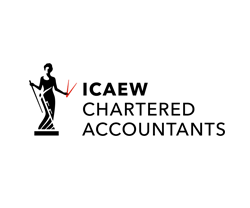March 10th, 2017
2017 Spring Budget Update
ATTACK ON SELF-EMPLOYED
In his first Budget on 8th March the new Chancellor Phillip Hammond announced that he would level the playing field between employees and the self-employed by increasing Class 4 National Insurance Contributions (NICs) from 9% to 10% from 6 April 2018 and then to 11% from 6 April 2019. His justification is that the self-employed are now entitled to more generous state benefits than in the past and thus NIC rate should be increased towards the 12% Class 1 NIC employee rate. Note that the flat rate Class 2 NIC contributions, currently £2.80 a week, cease on 5 April 2018.
The chancellor stated that only the self-employed with profits in excess of £16,250 will pay more national insurance.
We’re already seeing a backlash against this from some in the Government and the move now won’t appear in the Finance Act. However with a further Budget in November it can still be put in place by the planned start date of April 2018 once the fuss dies down.
TAX FREE DIVIDEND ALLOWANCE TO BE REDUCED TO £2,000
The Chancellor also announced measures to limit the rise in tax-driven incorporation. The £5,000 tax free dividend allowance introduced by George Osborne will be reduced to just £2,000 from 6 April 2018. Mr Hammond claimed that many smaller owner-managed businesses have incorporated as limited companies mainly for tax reasons. Typically the director/shareholders of such businesses have paid themselves in dividends and paid less tax than similar unincorporated businesses.
Currently, once the dividend allowance has been used the remaining dividends are taxed at 7.5%, 32.5% and then 38.1% depending upon whether the dividends fall into the basic rate band, higher rate band or the additional rate. There are rumours that these dividend rates may also be increased in future years.
Although the cut in the tax-free dividend allowance is clearly aimed at owner managed companies, it will also impact on those with substantial share portfolios. Mr Hammond reminded us in his speech that the annual ISA investment limit increases to £20,000 from 6 April 2017 and that dividends on shares held within an ISA continue to be tax free.
START OF DIGITAL REPORTING DELAYED FOR SMALLER BUSINESSES
The Government is committed to the “Making Tax Digital” (MTD) project which is scheduled to start in April 2018 with the first quarterly updates being submitted by the self-employed and property landlords in July 2018.
Many business owners, professional advisors and the Treasury select committee had expressed concerns about the timescale for the introduction of MTD. The Chancellor announced that there will be a one year deferral in the start date to 2019 for self-employed businesses and property landlords with gross income below the VAT registration limit.
PLANNING POINT – CHANGING YOUR ACCOUNTING DATE CAN ALSO DELAY THE START OF DIGITAL REPORTING
Another way of delaying the start of Making Tax Digital (MTD) would be to change the year end of your business. The legislation in the latest Finance Bill specifies that MTD will apply to accounting periods commencing on or after 6 April 2018.
This means that if you currently prepare accounts to 30 April then the first quarterly update to be submitted to HMRC will be for the period to 31 July 2018. However, if you changed the accounting date of your business to 31 March then the first quarterly update would be for the period from 1 April to 30 June 2019.
Contact us to discuss the full tax implications of such an action.
CORPORATE TAX MEASURES
The Chancellor announced that the Government is committed to continue to have the lowest corporate tax rate of the G20 major trading nations. As already announced the corporation tax rate reduces to 19% from 1 April 2017 and then to 17% from 1 April 2020.
The Government is also keen to continue to encourage investment in research and development (R&D) and the Chancellor announced that the R&D tax credit claim procedure would be simplified.
TAX FREE CHILDCARE SCHEME STARTS 2017
The chancellor also announced that the new tax-free childcare scheme is due to start in 2017.
The scheme will provide up to £2,000 a year in childcare support for each child under 12 where the parents save in a special account. If they save £8,000 the government will top up the account with 20% to a total of £10,000 which can then be used to pay for childcare costs.
BUSINESS RATES RELIEF FOR SMALL BUSINESSES
There has been much lobbying from the small business sector to reduce business rates. The Chancellor stated that 600,000 small businesses currently benefit from small business rates relief.
He also announced that no small business that is coming out of small business rates relief will pay more than £600 more in business rates this year than they did in 2016/17.
In order to support the licenced trade from April 2017, pubs with a rateable value up to £100,000 will be able to claim a £1,000 business rates discount for one year.
NEW VAT LIMITS
And in a crumb of good news, the VAT registration limit increases by £2,000 to £85,000 from 1 April 2017. At the same time the de-registration limit increases to £83,000.





